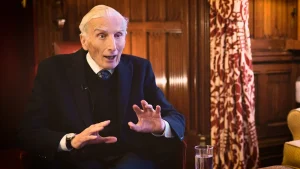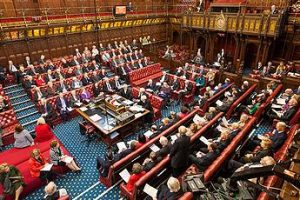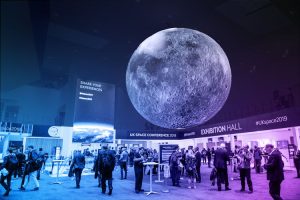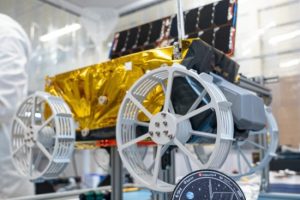The UK’s Astronomer Royal – his official title – has said government funding should no longer be used to send people into space. Talking in the context of space exploration and inter-planetary travel, he highlights that with the progress of robotics, and the ability to carry out tasks remotely, such space travel should be privately funded.
“Now that robots can do the things that humans were needed for 50 years ago, the case for sending people is getting weaker all the time,” he said.
He made the call during an interview for the Lord Speaker’s Corner series on the House of Lords channel on YouTube, which was published this week.
He suggested “that robots should do all the practical things and only people who really have a high appetite for risk should be going into space”, and they should be privately funded, not government funded via the wider tax-paying public:
“So my line on the human space flight is that it should not be funded publicly, certainly not by government agencies because they’ve got to be very safety conscious and that makes it very expensive. Robots can do all the practical things, assembling big structures in space and exploring the surface of Mars and all that.”
“If humans want to fly into space as an adventure, then perhaps they can be supported by sponsorship or the billionaires. We know that Messrs Musk and Bezos are spending billions on space exploration and they could perhaps launch the kind of people, adventurers prepared to accept a very high risk and therefore be launched much more cheaply.”
Climate change
Topics also covered in the interview include the importance of scientists engaging with wider society, difficulties in regulating AI, and disparities between the global north and south.
For example, when it comes to climate change, he advocates for the need to focus effort on Earth rather than looking to move to Mars: “dealing with climate change on earth is a doddle compared to making Mars habitable”.
Astronomy
When it came to the question of what areas he would encourage young people to study, Lord Rees replied:
“Well, I would encourage astronomy again because the subject seemed on the roll when I was starting 50 years ago with the discovery of evidence for the big bang and black holes, et cetera. Whereas if I think of just the most recent five years, discovery is about planets around other stars, the James Webb Space Telescope looking right back to the formation of galaxies and lots of new ideas about why the universe is expanding the way it is, et cetera. And it’s a wonderful exploration.”
“But of course we do it not just to explore but to learn about the basic laws of nature, which of course manifest themselves in a far more extreme way out in the cosmos than we could ever simulate in our labs. And so we can actually extend our knowledge of the laws of nature and, as it were, test them to breaking point. And that’s why it’s really part of fundamental physics to understand the strange phenomena we find out in the universe.”
You can see the full interview below:
The video series aims to highlight the work of the House of Lords and the experience and expertise of its members.
See also: Lords Committee examines Artificial Intelligence in Weapon Systems
 Electronics Weekly Electronics Design & Components Tech News
Electronics Weekly Electronics Design & Components Tech News




